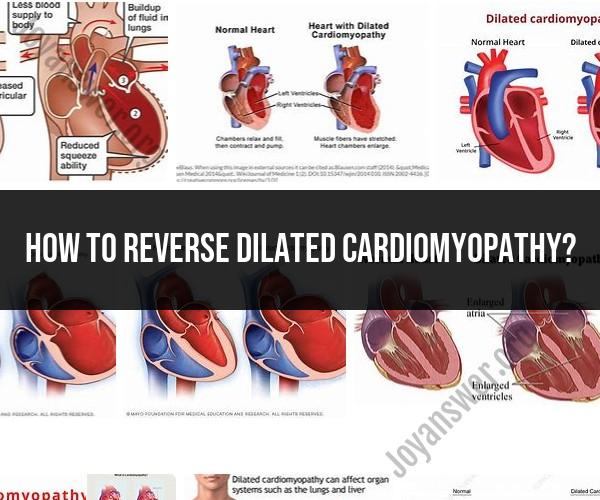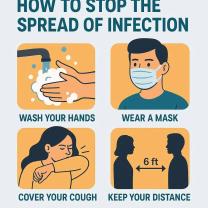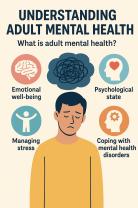How to reverse dilated cardiomyopathy?
Reversing dilated cardiomyopathy (DCM) is a complex process that typically involves a combination of medical treatment and significant lifestyle changes. It's important to note that not all cases of DCM can be fully reversed, but in some instances, it is possible to improve heart function and symptoms. Here are steps that may be taken:
Medical Treatment:
- Medications: Your healthcare provider may prescribe medications to manage symptoms, improve heart function, and reduce strain on the heart. Common medications include ACE inhibitors, beta-blockers, diuretics, and, in some cases, medications to manage irregular heart rhythms.
- Anticoagulants: If you have atrial fibrillation or other conditions that increase the risk of blood clots, anticoagulants (blood thinners) may be prescribed.
- Treatment for Underlying Causes: If DCM is caused by an underlying condition, such as high blood pressure, diabetes, or thyroid disease, managing and treating these conditions is essential.
Lifestyle Changes:
- Diet: Adopting a heart-healthy diet low in saturated fats, cholesterol, and sodium can help reduce strain on the heart. Emphasize fruits, vegetables, whole grains, lean proteins, and limit processed foods.
- Exercise: Regular, moderate exercise can improve heart function and overall health. However, it's essential to discuss an appropriate exercise plan with your healthcare provider, as excessive or strenuous exercise may be harmful.
- Quit Smoking: If you smoke, quitting is crucial, as smoking can further damage the heart and blood vessels.
- Alcohol Moderation: Limit alcohol consumption, as excessive alcohol can weaken the heart muscle.
- Weight Management: If you are overweight, losing excess weight can reduce strain on the heart and improve heart function.
- Stress Management: High stress levels can negatively impact heart health. Practicing stress-reduction techniques like meditation, yoga, or deep breathing exercises can be beneficial.
- Medication Adherence: Take prescribed medications consistently and as directed by your healthcare provider.
Cardiac Rehabilitation: Cardiac rehabilitation programs can provide structured exercise, education, and support to help individuals with heart conditions improve their cardiovascular health.
Regular Follow-Up: Attend regular check-ups with your cardiologist or healthcare provider to monitor your heart function and adjust treatment as needed.
Implantable Devices: In some cases, implantable devices such as pacemakers or defibrillators may be recommended to regulate heart rhythm and prevent life-threatening arrhythmias.
Heart Transplant: In severe cases of DCM where other treatments are not effective, a heart transplant may be considered as a last resort.
It's important to remember that the success of reversing DCM depends on several factors, including the underlying cause, the extent of heart damage, and how well you respond to treatment and lifestyle changes. Therefore, a personalized treatment plan should be developed in consultation with your healthcare team. If you or someone you know is dealing with DCM, it's essential to seek timely medical advice and follow the prescribed treatment plan closely.
Reversing Dilated Cardiomyopathy: Strategies for Heart Health
Dilated cardiomyopathy (DCM) is a condition in which the heart muscle becomes enlarged and weakened. This can make it difficult for the heart to pump blood effectively. DCM can be caused by a variety of factors, including genetic defects, coronary artery disease, and infections.
There is no cure for DCM, but there are treatments that can help to manage the condition and improve the quality of life for patients. In some cases, DCM may be reversible.
Here are some strategies for heart health that can help to reverse DCM:
- Medications: There are a number of medications that can be used to treat DCM, including beta-blockers, ACE inhibitors, and ARBs. These medications can help to slow the progression of the disease, improve heart function, and reduce the risk of complications.
- Lifestyle changes: Lifestyle changes such as quitting smoking, eating a healthy diet, and exercising regularly can also help to improve heart health and reverse DCM.
- Device therapy: In some cases, device therapy such as a pacemaker or implantable cardioverter-defibrillator (ICD) may be necessary to manage DCM and prevent complications.
Heart Health Journey: Exploring Ways to Combat Dilated Cardiomyopathy
If you have DCM, it is important to work with your doctor to develop a treatment plan that is right for you. This plan may include medications, lifestyle changes, and device therapy.
Here are some tips for managing DCM and improving your heart health:
- Take your medications as prescribed.
- Eat a healthy diet that is low in salt and saturated fat.
- Exercise regularly, but be sure to start slowly and gradually increase the intensity and duration of your workouts.
- Quit smoking.
- Maintain a healthy weight.
- Manage stress.
- See your doctor regularly for checkups and monitoring.
A Path to Healing: Understanding the Potential for Dilated Cardiomyopathy Reversal
The potential for reversing DCM depends on the underlying cause of the condition and how severe it is. In some cases, early diagnosis and treatment can lead to complete or partial reversal of DCM.
For example, if DCM is caused by a viral infection, the infection may go away on its own, and the heart muscle may recover. In other cases, such as when DCM is caused by coronary artery disease, the heart muscle may not be able to fully recover. However, treatment can help to manage the condition and improve heart function.
If you have DCM, it is important to talk to your doctor about your prognosis and the potential for reversal.











